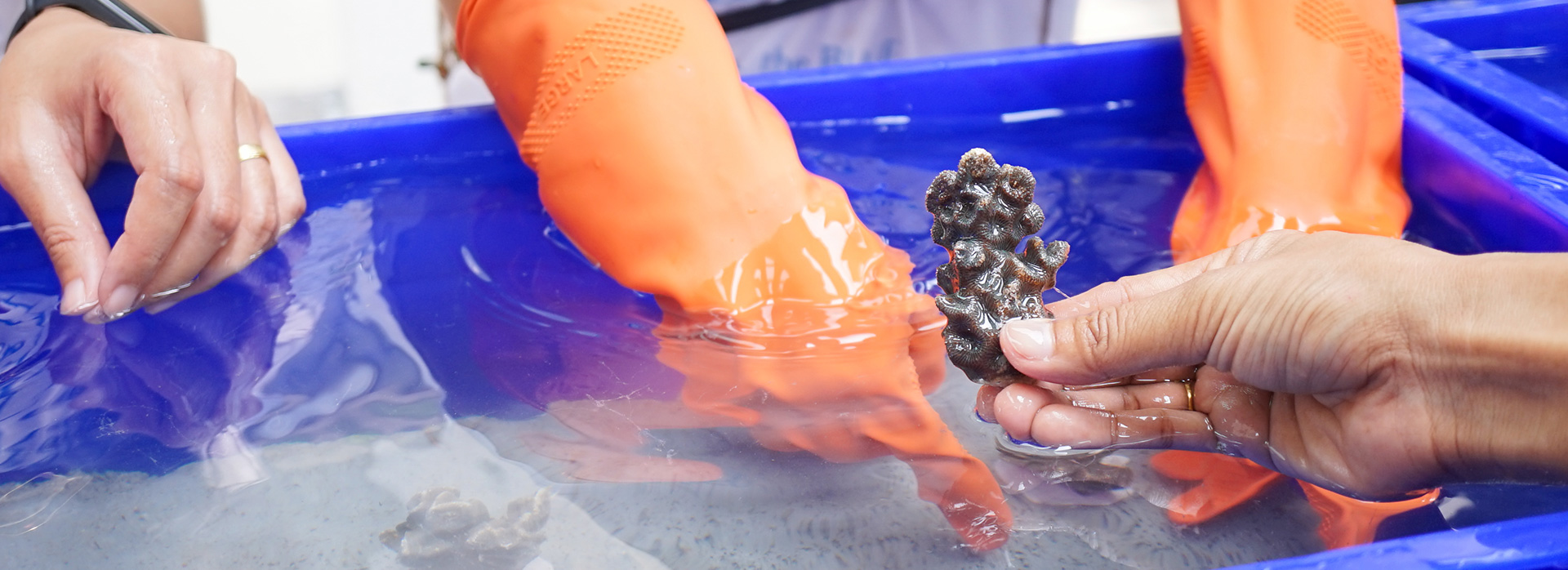Conservation Efforts and Climate Change Studies
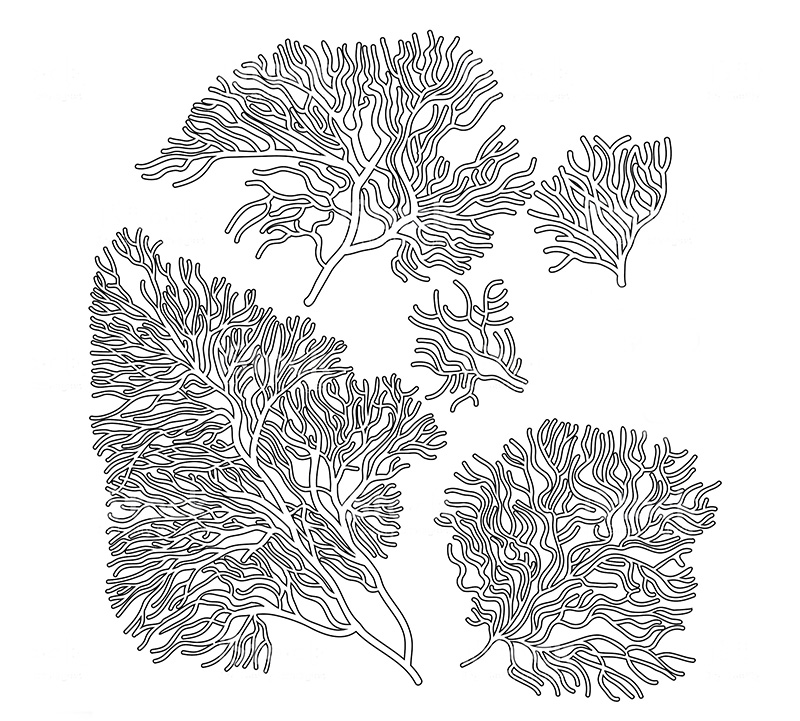
The Nova Southeastern University Halmos College of Arts and Sciences works with diverse global partners to understand and mitigate climate change impacts, protect ocean health and restore the functioning of our coral reef ecosystems.
Better weather predictions, probiotics that improve coral health and new methods of coral transplantation are all advancements that have come from recent research at NSU. And as a student, you can participate directly in these important initiatives.
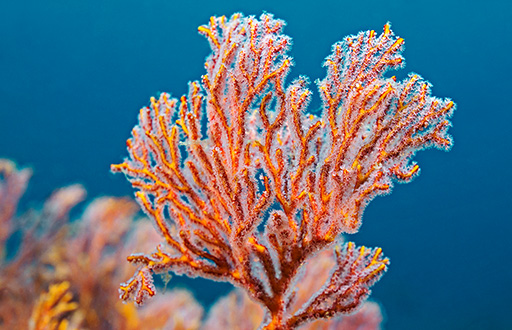
NSU Halmos College Researchers and Alumni Test Probiotic Treatment for Diseased Coral
The Smithsonian Marine Station (SMS) and NSU Halmos College of Arts and Sciences researcher Brian Walker, Ph.D., tested two new methods of using probiotic applications to treat wild Montastraea cavernosa coral infected with stony coral tissue loss disease. The first method uses a weighted bag enclosure to give the beneficial bacteria time to colonize an entire coral structure, while the second uses a paste applied to the surface of the coral to treat individual disease lesions. These treatments were developed by researchers at SMS, including Halmos College M.S. alumna Kelly Pitts.
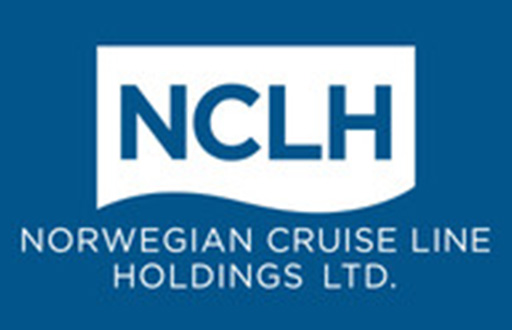
NSU Joins with Norwegian Cruise Line Holdings Ltd. to Help Restore Coral Reefs
NSU Halmos College of Arts and Sciences coral restoration experts and major cruise lines are coming together to protect the Earth’s oceans. NSU researcher, Richard Dodge.
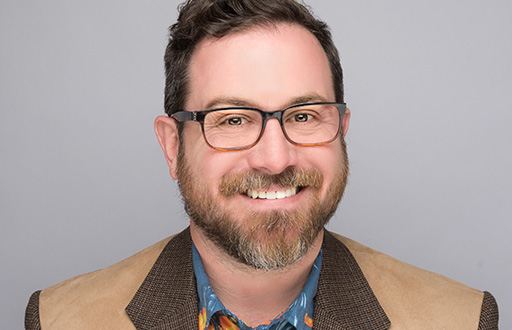
An NSU Researcher Weighs In on How Ocean Changes Affect Jellyfish Populations
While human impacts on ocean conditions have a negative impact on populations for many ocean species, jellyfish are thriving. NSU Halmos College of Arts and Sciences evolutionary biologist J. Matthew Hoch, Ph.D., sat down with Discover magazine to discuss how the simplicity of these invertebrates may be the secret to their success.
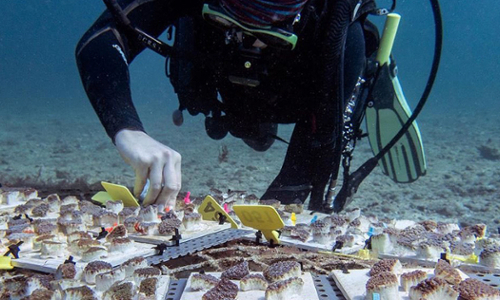
Our Work with Coral and Reef Ecosystems
For decades the NSU Halmos College of Arts and Sciences has worked with a broad coalition – other research universities, foundations and corporate partners – to improve our understanding and level of care for important marine environments. Our Oceanographic Campus in Dania Beach, Florida, is home to a nationally endowed coral nursery facility, the NSU Guy Harvey Research Institute and coral restoration partnerships with several NGOs.
NSU’s Climate Research
Our Environmental Science department is creating a new understanding of the impacts of climate change on weather events, ocean ecology and coastal society. Our work includes everything from measuring epigenetic changes in various populations of species to understanding the accumulation of heavy metals in seagrasses to the changes in parasite activity due to temperature shifts.
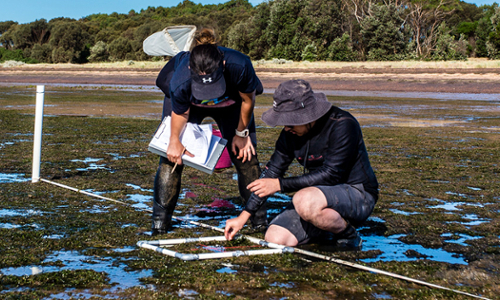
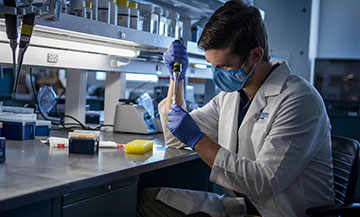
How You Can Get Involved
Students at the NSU Halmos College of Arts and Sciences are direct participants in our research. Through student groups, research assistant positions and faculty collaborations, both our undergraduate and graduate students get hands-on experience with lab research and field research techniques.
Related Degrees
All
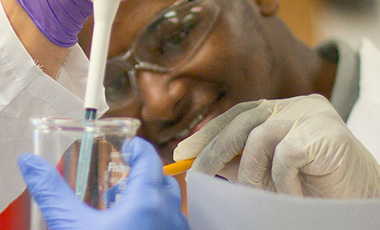
Biology (B.S.)
Prepare for a career in research, education or medicine. Apply your skills through shadowing opportunities in local hospitals, internships and hands-on, original research in subjects like Gulf Stream ecology, brain structure and function, the human microbiome or shark genetics.

Chemistry (B.S.)
Forge a path in industry, education and government – or through graduate degrees in chemistry, medicine, pharmacy, dentistry, optometry, anesthesiology, environmental protection, law, forensic sciences and nutrition. The exceptional lab facilities and faculty at NSU put the future in your hands.
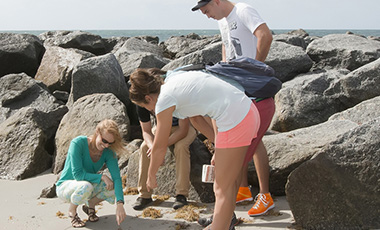
Environmental Science (B.S.)
A changing environment needs highly educated people who can address both scientific and societal challenges. Core courses ground you in ecology, chemistry and environmental law. Electives, field studies and internships expand your horizons. This degree opens doors to technical fields, graduate study, policy and service jobs.
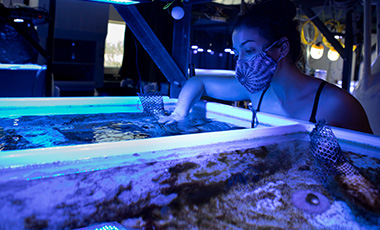
Marine Biology (B.S.)
The future of our oceans demands a new generation of scientific leaders. Your dedication to the marine environment will put you ahead of the competition in graduate studies in biology, medicine or environmental sciences. It starts with a firm grounding in ecosystems, laboratory techniques and ecology gained as you explore the physical sciences and discover the intricacies of the marine world.
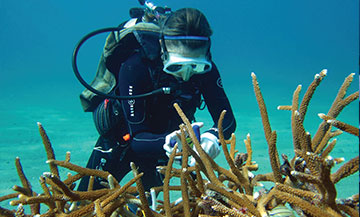
Environmental Science (M.P.S.)
In the Master of Professional Science in environmental sciences program, you have the choice to specialize in marine biology, coastal zone management, computational molecular biology or environmental sciences. This program is unique in providing basic applied marine and environmental science as its anchor.
This program is an excellent choice for any recent graduate or returning professional who requires additional expertise or credentials for career advancement.

Biological Sciences (M.S.) – Research Concentration
This M.S. with a concentration in research gives you the opportunity to pursue your research interests in a specific aspect of genomics, microbiology, evolution, ecology, parasitology, molecular biology or bioinformatics.
As a graduate of this program, you can enter a multitude of careers in any field of biology or continue your educational journey in a Ph.D. or professional medical program. In your research, you’ll tackle significant questions in biology and gain a superior understanding of the scientific method, applying it to your specific research goals and projects.
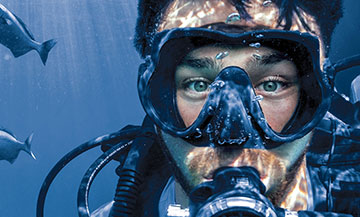
Marine Science (M.S.)
What better place to advance your education in marine science than at a university with an entire campus and marina devoted to the field? Dive into your study of marine systems with a wide variety of special topics, including everything from shark research to coral reef conservation.
As a graduate of the marine sciences master’s programs, you’ll be prepared for advanced roles in education, nonprofit organizations, government agencies and more.
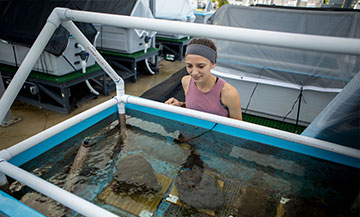
Oceanography/Marine Biology (Ph.D.)
As an oceanography/marine biology student, you will work directly with a major professor. Your faculty research mentor will help you develop your academic program of study and your research.
This degree focuses on cultivating your ability to conduct advanced, original and independent research that adds to the body of oceanographic knowledge in one or more of the sub-discipline areas.
You and NSU – the Sky’s the Limit
Your support and involvement helps us create, investigate, and improve the world around us. Join us in our passion to bring out the best in our students, our society, our environment, and our economy.


